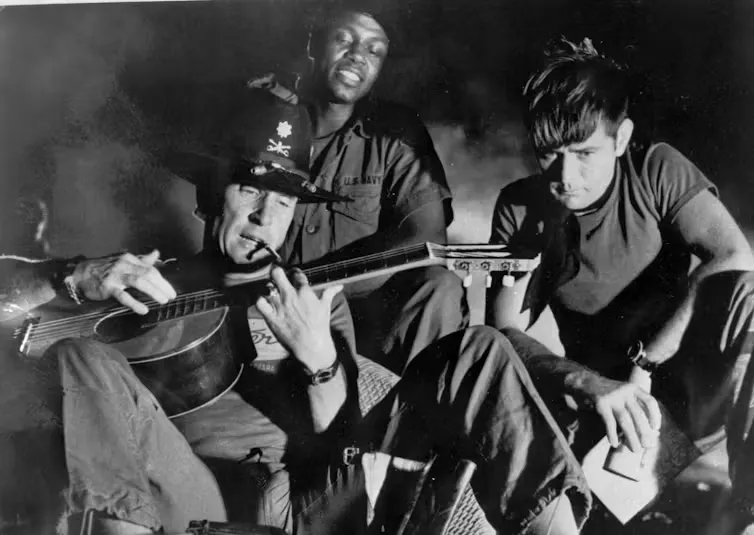Table of Contents
The most fatal delusion of the Bush presidency was that democracy could somehow be exported as a neat package and plonked down in a backwards, tribal shithole and start working. You’d have as much luck teaching goats to tap-dance.
Democracy was a centuries, even millennia, long process for the West. It needed – and still needs – a complex, jigsaw, interaction of processes. Philosophical, political, even religious.
But one of the most important, according to historian Rafe Heydel-Mankoo, was the nuclear family and the banning of cousin marriage.
There are crucial reasons why democracy arose in the West, and nowhere else, just as there are crucial reasons science did likewise. Contrary to the nonsense from militant atheists, at the heart of both was Christianity.
Back in the day, about 1,000 years ago, the Roman Catholic church banned cousin marriages – not because of any known health issues, but because it ‘promoted family loyalty at the expense of universal love and social harmony.’
The importance of that simple statement is profound. Every bit as much as the injunction to ‘render unto Caesar the things that are Caesar’s’. Universal love and social harmony are critical ingredients for democracy.
At the time, this was a radical idea.
This was in a time where, all over the world, cousin marriages were quite normal and very common. It seems strange now, but we should understand that the concept of the nuclear family wasn’t so much of a thing, and most societies lived with an extended family model. Children were raised and educated by many family members. I remember when I went to a very, very traditional countryside area of China, where they lived in log shacks with huge gaps between the logs, flies all over their food, and slept on the solid mud floors, they explained their ways of life in a very fascinating way: Children were not told who their father is until they come of age, I think about 13 or 16. Prior to that, everybody raised them equally. Every man considered an Uncle.
This has profound effects. It creates a clear mental distinction between ‘family’ and ‘everyone else’.
It doesn’t matter which side of the family Aunts and Uncles are from – they’re all just called Aunts and Uncles. Same with ‘Cousins’. There is a very clear separation here between that nuclear family (kids and direct parents), and everybody else as an ‘outer circle’.
The outcome of this is obvious: anyone not ‘family’ is automatically distrusted. Nepotism becomes the rule.
But, once the church banned cousin marriage, that all changed in the West.
From this point, people had to marry outside of their bloodlines, intermingle, get along with people a bit different to them.
This in turn lead to a more individualistic approach to one’s needs and expectations. Instead of relying on a hundred family members to use their collective skills, knowledge and wealth to get things done together, we would contract outsiders for various services, education, repairs, loans, and so on.
By becoming more individualistic as a society, over time, we lead ourselves into a state of more independence and autonomy, more outside-the-box thinking. Competing minds and different perspectives would frequently come into contact with one another, ultimately leading to a more innovative and creative society.
Contrast that with a culture of cousin marriage that’s been imported into the West.
Pakistanis living in the UK […] very specifically keep to themselves more than any others. Cousin marriages in both countries are, to this day, substantial; while less than 1% of English cousins were coupled together, this number is almost 40% in Pakistan individuals in the UK. Blood relation couples more generally is about 60%. About 50% of all marriages in Pakistan are cousin marriages, although in various villages this can surpass 80% – with devastating consequences, not just culturally and economically.
Pakistanis in Britain, and in Pakistan, have a shockingly high rate of birth defects. At least two to three times higher than non-Pakistanis.
Another consequence of the insularity engendered by cousin marriage societies is the notion of guilt versus shame. Insular, non-nuclear family societies tend to emphasise shame, as a collective sin. Western, nuclear family society, on the other hand, emphasises guilt: individual responsibility.
Shame can result from actions that bring dishonor or disgrace not only to oneself but also to one’s family or social group. The focus is more on maintaining harmony within the group and upholding its reputation.
Guilt, on the other hand, is more individualistic in nature, focusing on personal actions and their consequences – a failing of one’s own personal values. Self-disappointment. This is theorised that perhaps this brings with it a stronger sense of personal responsibility and behavioural regulation.
Shame took centuries to eradicate from Western culture, as can be seen in mediaeval society, where heresy was a collective sin against the community. Confession, emphasising the individual’s relationship with God, went a long way to eradicating collective thinking.
But it was outlawing cousin marriage that was the really crucial step.
Sure, it can be argued that the church was looking after its own interests when it made this change, but that’s irrelevant. It’s the outcome that matters.
Re-importing cousin marriage is a retrograde step, which is already weakening Western democracies.







